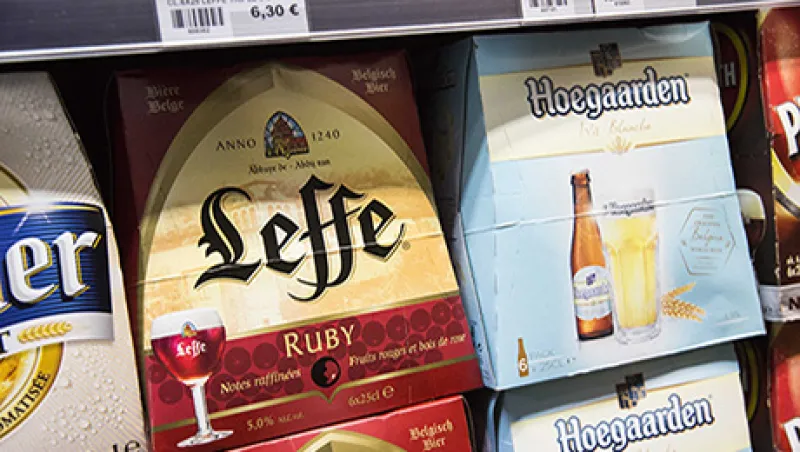
Six pack boxes of Leffe premium beer and Hoegaarden white beer, produced by Anheuser-Busch InBev NV, sit on display in a store in Paris, France, on Thursday, Oct. 15, 2015. AB Inbev is planning to sell bonds worth as much as $55 billion to finance its $106 billion takeover of SABMiller Plc, setting a record for debt issuance to fund a corporate acquisition, according to people familiar with the matter. Photographer: Christophe Morin/Bloomberg
Christophe Morin/Bloomberg

